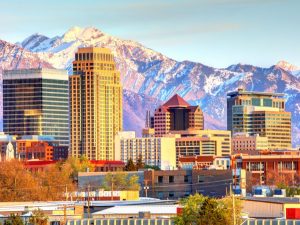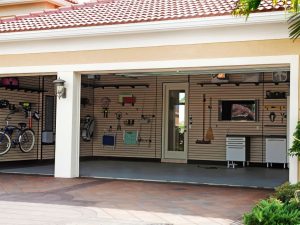12 Best Questions to Ask When Buying a House

Buying a home is no small matter. It’s a big decision that requires research, time, and money. To help you feel more comfortable about this decision, ask questions!
Asking questions helps make a seemingly complicated process easier to understand. It also helps you find the right home for you and your family. What are the right questions to ask, though?
- What is the total cost? Or what can I afford?
- Why is the seller moving out?
- What is included in the sale?
- How long has the house been on the market?
- How much are homes in the neighborhood selling for?
- Is the home at risk of natural disasters?
- Are there any health and safety issues?
- How old are the appliances?
- Does the house have any insurance history claims?
- How old is the roof?
- How is the neighborhood? Or how are the neighbors?
- How much will I pay in closing costs?
If you know the answers to these questions, it will make buying a home less stressful and an overall better experience for you. Why are these questions the best ones to ask? Keep reading and we’ll dive into each one.

1. What Is the Total Cost? What Can I Afford?
This is definitely the first question for a reason. Knowing what you can afford will help you narrow in on the type of house you can get. There are also several factors that go into the total cost of a house—not just the price of the house itself.
Here are several additional costs you should know about before buying a home:
- Appraisal
- Property (If building on a new lot)
- Inspection
- Mortgage interest
- Mortgage and homeowners insurance
- Taxes
- HOA fees
As you look into all the different costs of buying a home, you’ll have a better understanding of what you can afford, and feel confident knowing you won’t get into a home that’s over budget.2
2. Why Is the Seller Moving Out?
Knowing why the seller wants to move out of the home can tell you whether the home itself is worth buying or not. It also gives you some price negotiating leverage should you need it.
If the seller is moving because they simply want a bigger or new home, in most cases, you should feel safe buying it. If they’re trying to get out of the home due to issues with the house or property, or even with the neighborhood, you might want to do a little more digging into what those issues are.
Problems with the home or neighborhood can quickly become your problems if you decide to buy. If you feel comfortable addressing those issues should you buy the home, you can use them as a way to negotiate a lower price. Weigh the options and see what will be best for you in the long run.
3. What Is Included in the Sale?
It never hurts to ask what comes with the house you want to buy. Some homeowners will sell their homes along with all the appliances or furniture. There may be specific rooms that look better with the lighting coming from the current owners’ lamps. Or maybe you fell in love with curtains and drapes throughout the house.
If there are certain decorations or appliances you would love to keep with the house, it never hurts to ask the owner whether they’re willing to part with them or not.
4. How Long Has the House Been on the Market?
Especially here in Utah, most houses don’t last long on the market nowadays. People are eager to buy homes and will pay well above the asking price to make sure they get the home they want. In some instances, though, houses may stay on the market for a while.
Typically, when a house has been on the market for a number of weeks, it can be a sign that there’s an issue with the home. Maybe it’s priced too high. Maybe there’s a problem with the home. If either of these is the case, the longer the house sits on the market, the more likely the owner will make a deal.
If a house has been on the market for over 90 days, it’s generally a safe bet to come in with an offer lower than the asking price. Chances are, the owner just wants to sell at this point and will be more open to lower offers.
5. How Much Are Homes in the Neighborhood Selling For?
Neighborhoods come in all shapes and sizes, and so do the homes you find within them. That’s why it’s always a good idea to know how much money other homes in the neighborhood are selling for. This will give you a general idea of what your house should be priced at so that you don’t pay too much, and it will also provide you with information about the value of the neighborhood itself.
6. Is the Home at Risk of Natural Disasters?
It’s always better to be safe than sorry, and the same goes with knowing about any risks of natural disasters surrounding the home you want to buy. Is the home you want in a flood zone or next to a fault line where earthquakes commonly occur?
Unfortunately, no home is 100 percent safe from natural disasters, but you can prepare for one by getting the right type of home insurance. Flood, fire, and earthquake insurance are easy to purchase and can help give you peace of mind with your future home.
7. Are There Any health and Safety Issues?
Aside from natural disasters, the home you want to buy may also come with a few health or safety issues. That’s why it’s always important to ask about the health of the home, especially if it’s an older home.
Lead paint, asbestos, and mold are common in older homes. We recommend getting a thorough inspection done before you buy any home to make sure there are no issues you may or may not notice.
Asking about any health and safety issues are great questions to ask your realtor, so they can help you find out if the home you want is going to be a forever home or a forever nightmare.
8. How Old Are the Appliances?
If the appliances come with the purchase of the home, you should ask how old they are to prepare for any repairs or replacements. We aren’t just talking about the refrigerator or the washer and dryer either. Find out how old the furnace and water heater are, as well as the air conditioner and the garage door. You don’t want to buy a home and be surprised with a sudden repair from an old appliance or HVAC unit.
9. Does the House Have Any Insurance History Claims?
Has the house you want to buy gone through any major repairs? It may be beneficial to see if any damage has been done to the home. Even if repairs are done well, there may be some damage that was missed and not fixed.
For example, maybe a home experienced flooding in the basement, and the walls and flooring had to get replaced. Can you be sure the cause of the flooding was fixed? Can you be sure no water damage was missed? Ask about any insurance claims to give you a better idea of the overall health of the home.
10. How Old Is the Roof?
It’s always a good idea to ask how old the roof is on any house you wish to buy. Depending on the type of shingling used on the home, a roof can last anywhere from 15 to 50 years. If you’re looking to buy an older home, especially one that’s over 20 years old, make sure to ask when the last time the roof was replaced.
Replacing a roof is expensive and can leave you without a home for a week or two. Plus, you don’t want to end up in a home where the roof should have been replaced years ago and starts leaking during a rainstorm, or worse, caves in.
11. How Is the Neighborhood? How Are the Neighbors?
Learning about the neighborhood and your neighbors is just as important as learning about the home you want to buy. Ask your seller about their experience with the neighborhood and their neighbors.
Ask them about the schools. Ask them if thefts or other crimes are a problem. Ask them if they know and trust their neighbors. Remember, this neighborhood could be your neighborhood if you choose to buy the home, so don’t move anywhere you wouldn’t feel comfortable raising your family.
13. How Much Will I Pay in Closing Costs?
Similar to the total cost of the home, closing costs are also important to consider when purchasing a home. These costs vary between the home and the area. You may also have to pay third-party fees, including realtor fees, HOA transfer fees, and more. We recommend talking with your realtor and getting a clear picture of what closing will look like.
The more questions you ask, the more comfortable and prepared you’ll feel purchasing a new home.
Next Level Homes Has All the Answers

With a Next Level Home, you get everything you ask for. From beautiful, modern homes with spacious floor plans, to quick and easy closings, you’ll be in a brand new home in no time! We’ve been building and selling homes throughout Utah for years and we can help you find the perfect home for you and your family. Click the button below to talk to one of our licensed agents today!
Recent Articles
Small Space Organization Ideas
With the rise in popularity of tiny homes and the usual crooks and crannies in sprawling homes, small space organization is an important element of home organization. By utilizing all the spaces in your home, you’ll be able to create an open, homey feel even in the tiniest of corners. 20+ Easy Ideas for Organizing…
Read MoreBest Things To Do in Utah for Any Occasion
Utah is packed with fun places to explore and experiences to enjoy! From the beautiful mountains and surrounding nature, to the best family-friendly spots you’ll visit again and again, when you and your family want to have a good time, you’ll find it in Utah. We created a list of the best things to do…
Read MoreBest Garage Tool Organization Ideas
The garage is the perfect place to store many of your belongings. If you’re good at Tetris, you may even store your vehicles in there, too. Yet organizing it is a whole different story. Optimizing the space in your garage can be a big task because everyone’s garage and belongings are different. What organization works…
Read More


